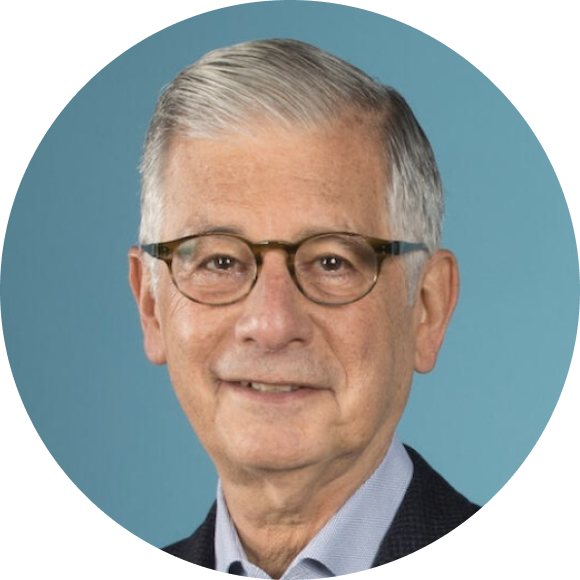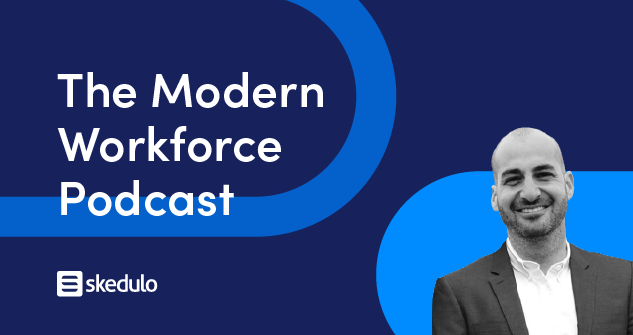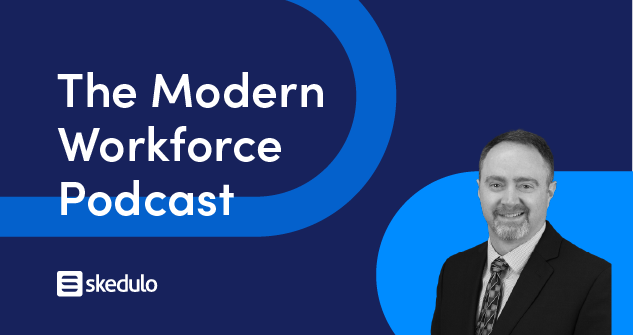The Modern Workforce:
How to Build Workplace Opportunity and Equity for All Workers
Stephen Goldsmith and Harvard Fellow Kate Markin Coleman

The way to address the Great Resignation is to start with people. Among the people-focused principles that we should apply to creating a more equitable workplace are trades education, upskilling, and digitization.
Hear our conversation with the authors of Growing Fairly, Harvard Professor Stephen Goldsmith and Harvard Fellow Kate Markin Coleman:
- A high-level view of the 10 principles of growing fairly
- Case studies of equitable growth
- Trades education, mid-skilled jobs, and the role of local action
What could help create a more equitable workplace? Let’s dig in.
What’s Behind the 10 Principles of Growing Fairly?
Kate said that the foundational principle is simple — “we need to start with people.”
If you look at the population for whom skilling would provide mobility, it ranges from people who need some reskilling to maintain employment all the way to people who need executive skills development.
A reskilling system has to be based on the needs of the people it serves, and it has to offer them meaningful opportunities.
The next set of principles addresses building effective programs.
Effective programs take a local action approach. They might address behavior change in a select population. Or they might provide digitization.
Finally, effective programs have to make change at scale.
Case Studies of Equitable Growth
IBM
More than 50% of the jobs that IBM has posted in North America do not require a degree.
Consequently, IBM stopped asking for one and started looking for what it really needed. The company made a commitment to its workforce. IBM would help identify employees’ talents, skill them up with credentials, and then place them in jobs.
The company would use its own AI to determine what employees have learned and how that compares to open jobs.
Roca
Roca assists young adults who have been justice-involved in Massachusetts and in Baltimore. These people are neither ready nor willing to show up for training, much less a job. The justice system directs them to Roca.
Roca’s outreach workers have to go out 813 times to make a single connection, but once they do, they begin what they call a transformational relationship.
The program centers on developing executive skills with the goal of accelerating behavior change. At that point, the participants can begin transitional employment.
Trades Education, Mid-skilled Jobs, and the Role of Local Action
Do you really need a college degree to do this job? Are there other ways to get the knowledge and skills the job requires?
Take the trades for example. Tradespeople are the people who make the world work. And they’ve protected their industry with certifications instead of degrees. You need an occupational license to get 40% of trade jobs. If we loosened up some of the certification requirements, we could reduce poverty by up to 2% in some populations.
It will take strong local action to encourage a new approach to reskilling and promoting the trades. This will require local initiatives to provide transportation, childcare, and a commitment to linking skills training to open career clusters.
The college system is not going to produce enough jobs…
So let’s organize around new approaches to create mid-skilled workers.
And let’s do it with a people-first approach.
To make sure you never miss an episode of The Modern Workforce podcast, subscribe on Apple Podcasts, Spotify, or anywhere you get podcasts.

Kate Markin Coleman directs IAS Advising, LLC and is former Executive Vice President, Chief Strategy, and Advancement Officer of YMCA in the U.S. Coleman was a top official in one of the country’s largest nonprofits, the national YMCA, where she advanced innovation and effectiveness. She studied cross sector collaboration as a Harvard Advanced Leadership Fellow and is the co-author of two books that offer practical insights on how to design effective solutions to challenging urban problems.

Stephen Goldsmith is the Derek Bok Professor of the Practice of Urban Affairs at Harvard’s Kennedy School of Government.. He previously served as Mayor of Indianapolis, Deputy Mayor of New York City, and Chair of AmeriCorps for a decade. Goldsmith has developed a reputation as one of the country’s most innovative and effective local public servants in the last 25 years. He is the author and co-author of eight books on cities and conducts sessions for mayors and senior local officials at Harvard.
Over a two-year period, Goldsmith and Coleman interviewed hundreds of government, business, and nonprofit leaders, as well as program staff and current and former program participants. Based on their conversations, the authors set out ten principles for designing a more effective, equitable workforce development system, one that will help workers obtain the skills necessary for economic mobility.




